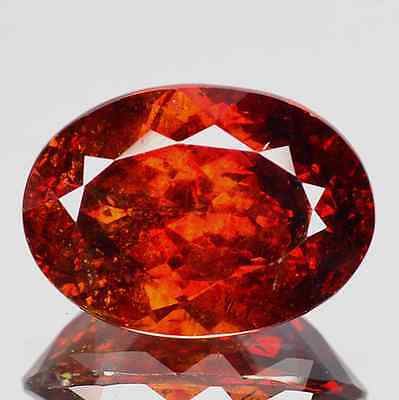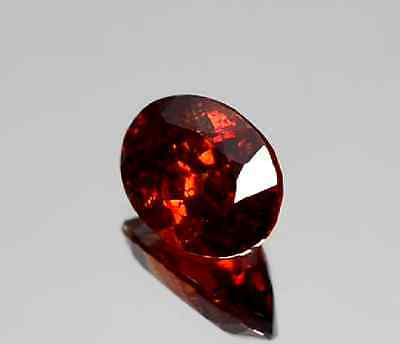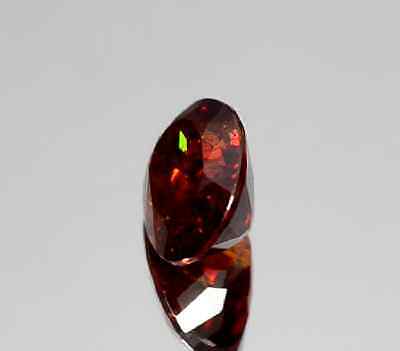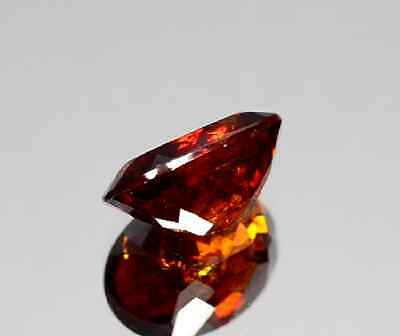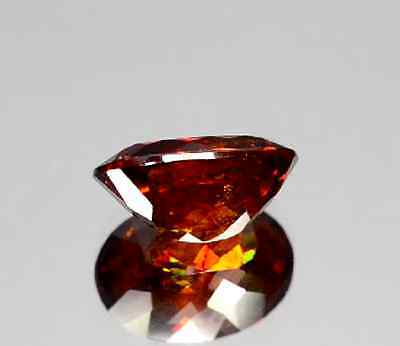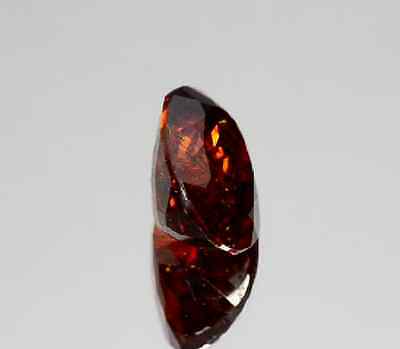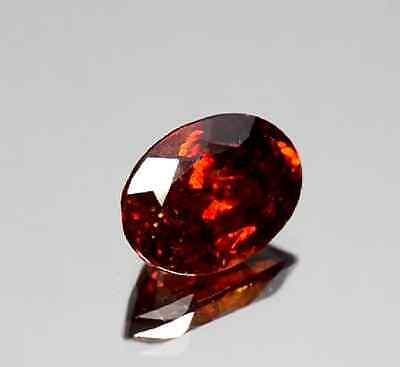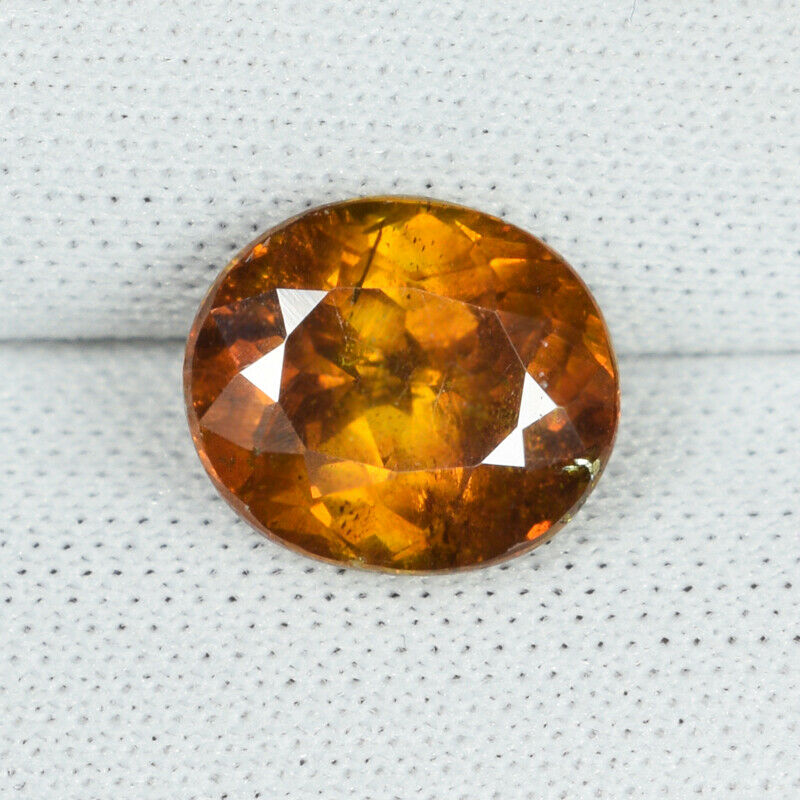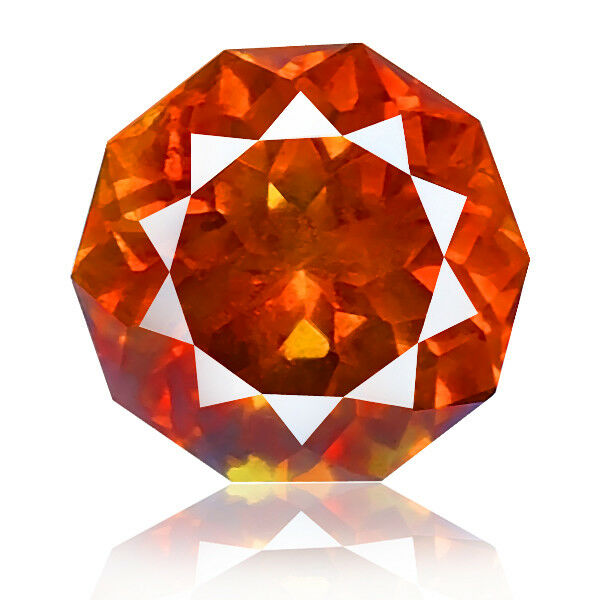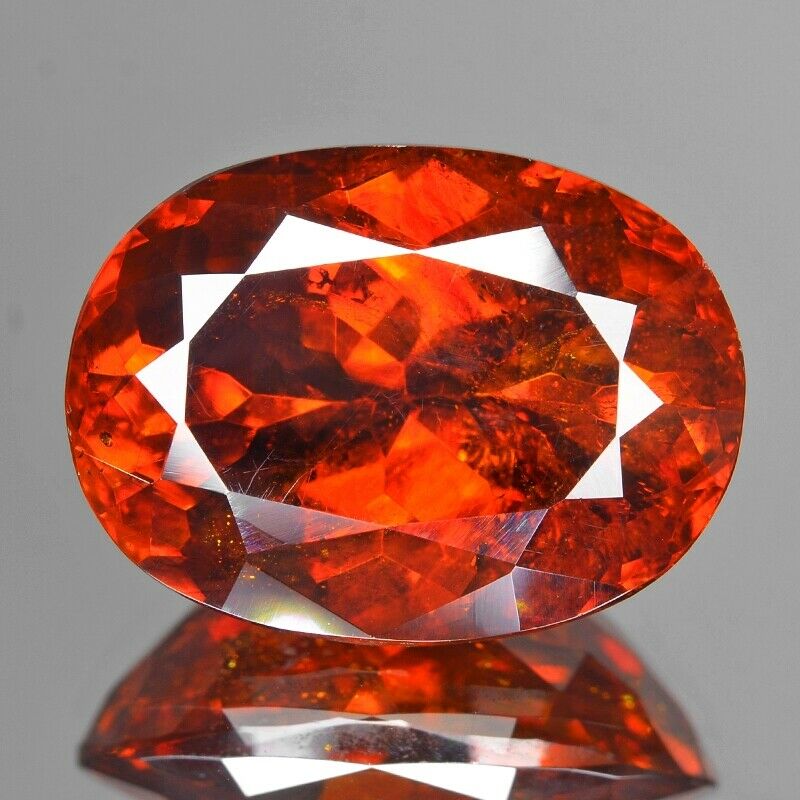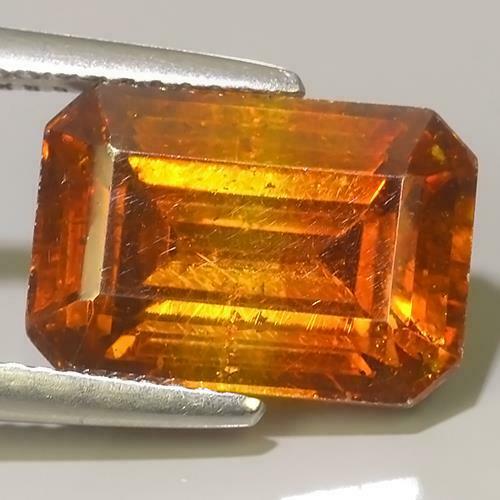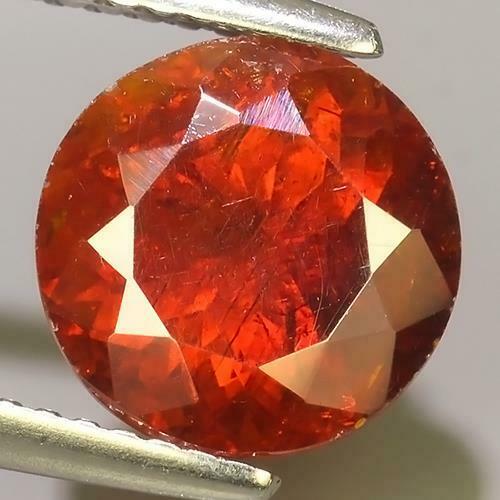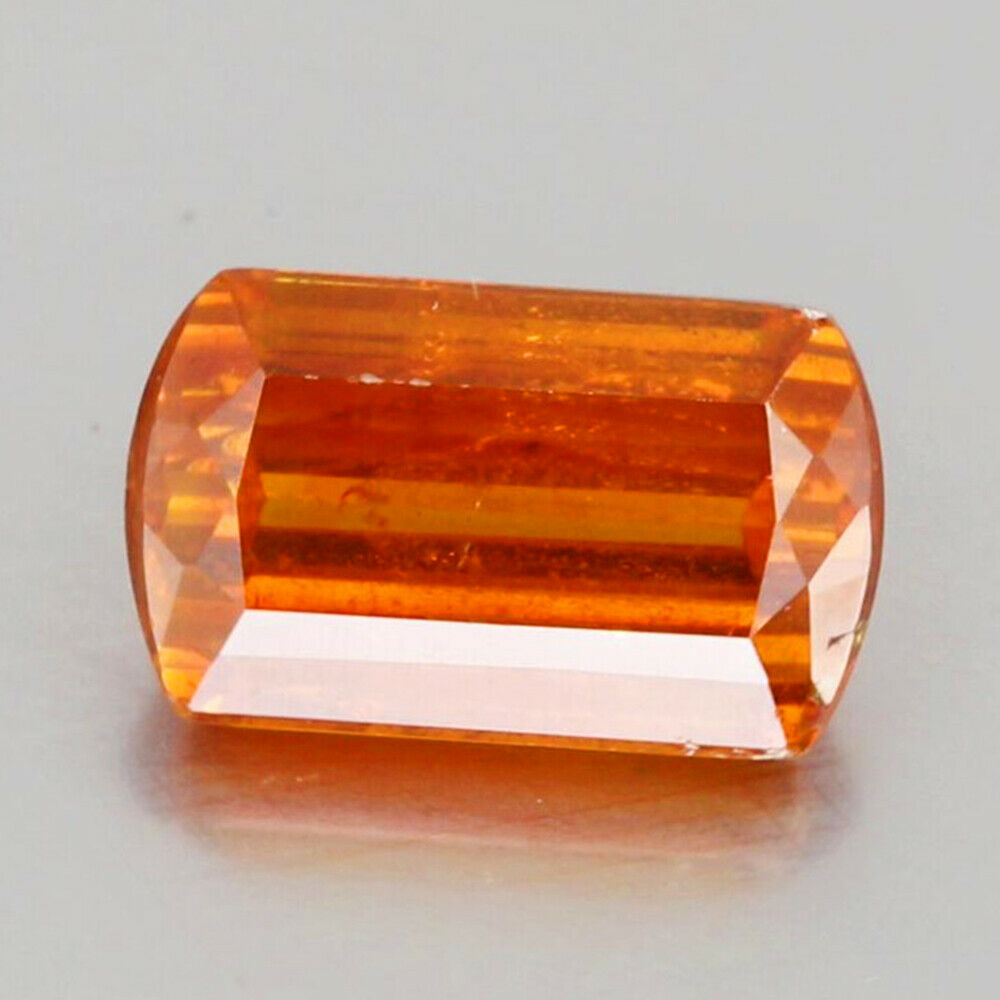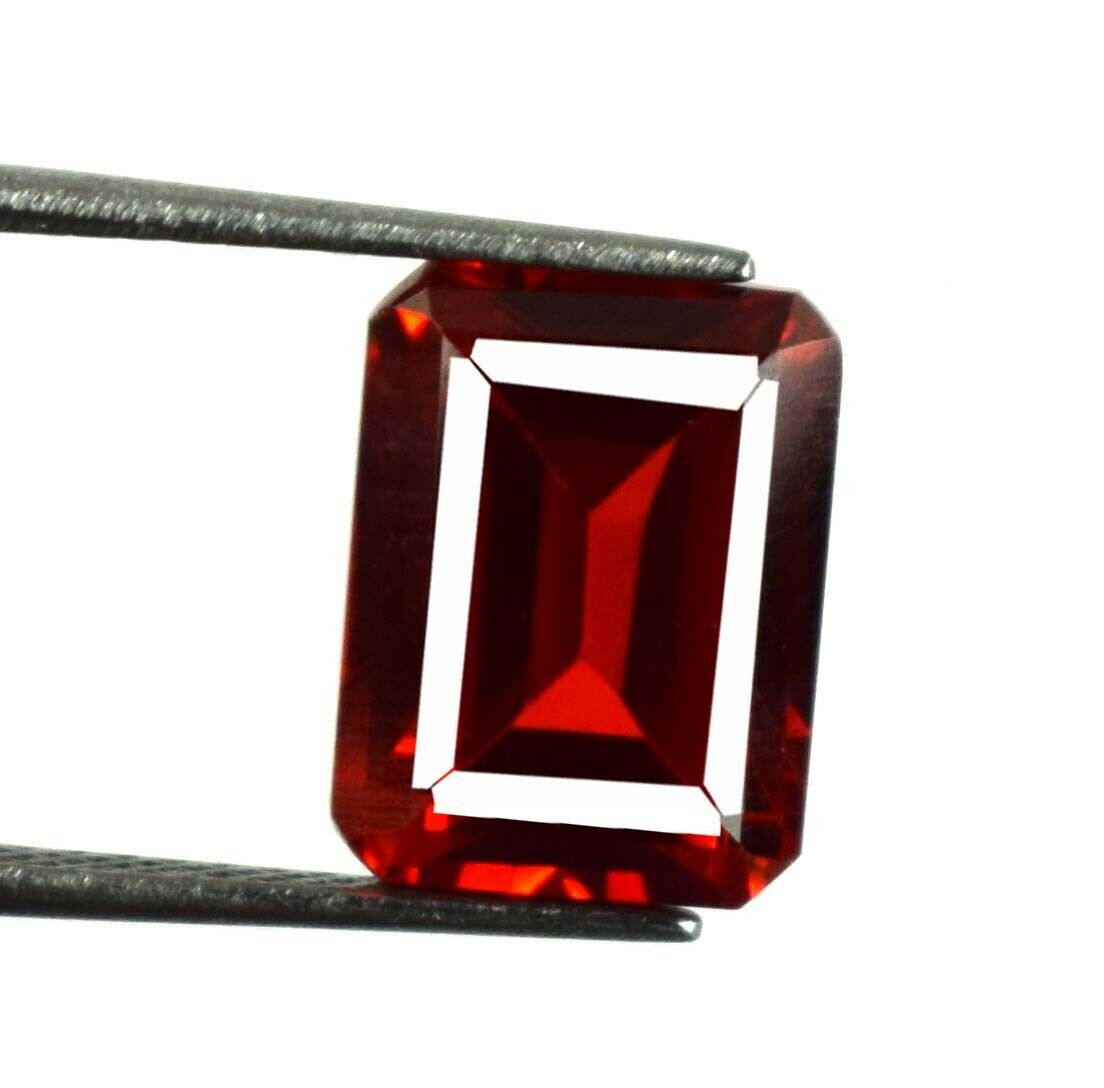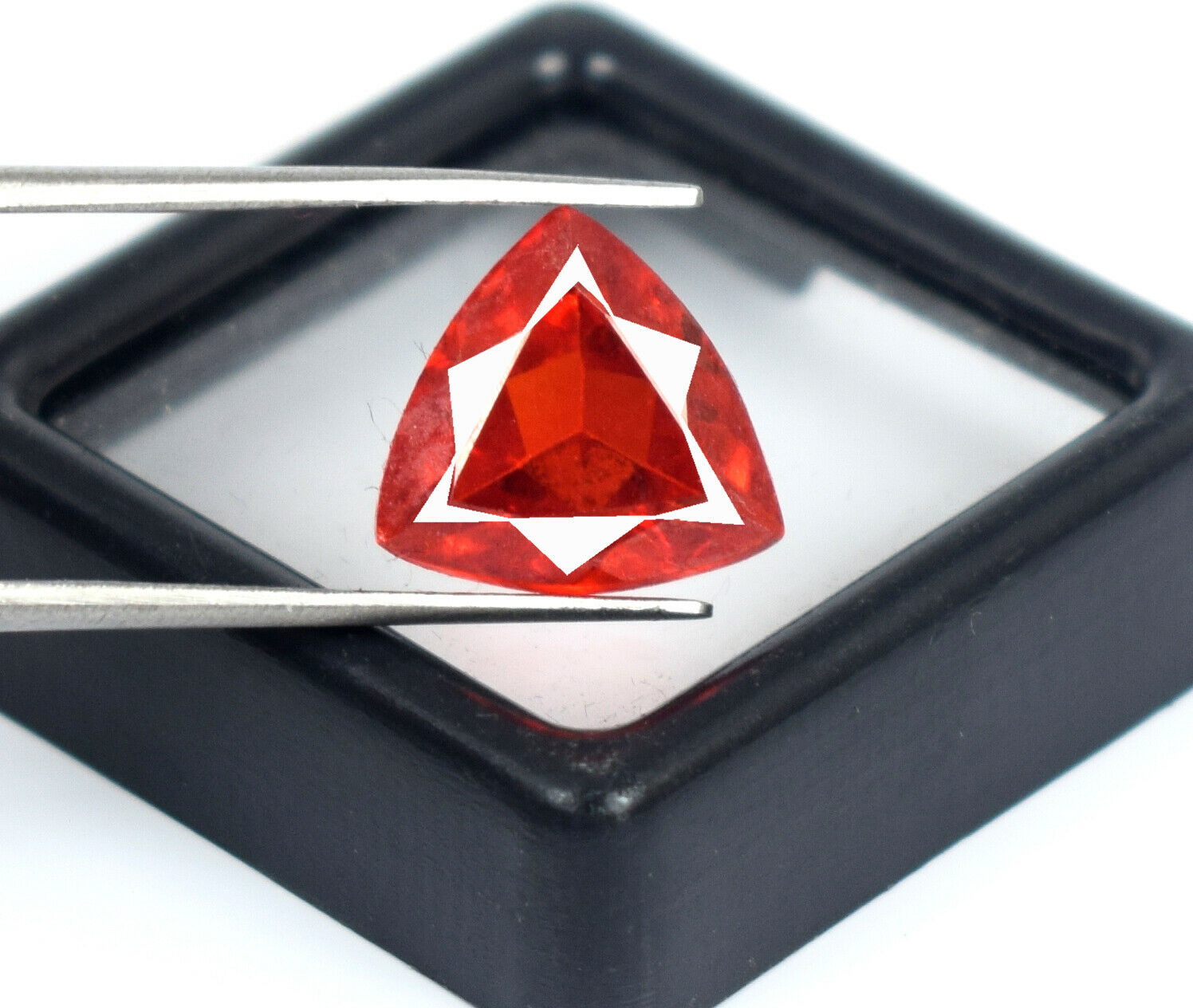-40%
4.25 cts Rare Natural Oval-cut Red/MultiColor Flashing VVS Sphalerite (Spain)
$ 132
- Description
- Size Guide
Description
4.25 cts Rare Natural Oval-cut Red/MultiColor Flashing VVS Sphalerite (Spain)New without Tags. This gem has never been used/placed/set in a setting.
It is utterly undamaged, unmarred and in perfect condition as expected of NWOTags.
I have included two Sphalerite articles below for your appreciation and enjoyment.
Summary of below:
"Some gemstones display a rare property known as fire. When you turn a gemstone in the light, some gems will display flashes of color, which is the result of the
dispersion
of white light into the colors of the spectrum. Dispersion occurs when different wavelengths of light are refracted by a different amount by the refracting medium. Diamond is famed for this quality, but a number of other gemstones are notable for their fire, including
demantoid garnet
,
sphene
and
zircon
." ...
"However, there is a little-known gem which has even greater fire; in fact its dispersion rating is three times as high as that for diamond. The gem is called
sphalerite
and gem dealers who specialize in collector's gems will sometimes have specimens in stock."
Type: Natural Sphalerite
(personally confirmed as Genuine Sphalerite by digital refractometer (RI=2.369), dichroscope, polariscope, spectrometer, UV short&long-wave light, measured Specific Gravity=4.02) -- captej2012
Color: Red/MultiColor Flashing due to Sphalerite's exceptionally High Dispersion
Shape: Perfect Oval-cut
Dimensions: 11.24mm x 8.13mm x 5.48mm
Weight: 4.25 cts
Hardness: 4.0 rating on the Mohs Scale
Luster: Flashing Fire
"However, there is a little-known gem which has even greater fire; in fact its dispersion rating is three times as high as that for diamond. The gem is called
sphalerite
and gem dealers who specialize in collector's gems will sometimes have specimens in stock."
Clarity: VVS
Treatment: Not Heated, Not Treated, Not Enhanced
Origin: Spain
She came as an infant, moody and maddeningly fickle.
We never knew what would set her towards
All of Several Colors
.
Howsoever dynamic though, she is beautiful for it.
But now, she bristles and brays with boredom.
She's matured beyond the Elderly Two-of-Us.
We understand and will send her to who will love her away.
We are an eBay eStore enterprise focused on selling mostly Loose Natural Gemstones. Stay here, look around and learn. Via eBay Messaging, ask us questions, make an offer, and otherwise discuss your wishes, concerns and hopes. We pride ourselves as good-spirited folks having fun and doing our best to share the joy of Nature's most beautiful and enduring literal treasure -- Natural Gemstones. Expect to find us cheerful and trustworthy, and we will expect the same of you. For us, Negative FeedBack as a means of coercion is never needed and only degrades everyone's enjoyment in what should otherwise be a fun shopping experience. And finally, please enjoy my work as eBay's First (unofficial) Gemstone Poet. -- captej2012
===========================================================
From URL: https://www.gemselect.com/gem-info/sphalerite/sphalerite-info.php
Sphalerite Gemstone Information
About Sphalerite - History and Introduction
Sphalerite is a zinc ore mineral that typically contains iron. When it has a high iron content, sphalerite is an opaque black. Gem-quality material has a low iron content, resulting in transparent crystals. Due to its lack of hardness, it is mainly a collector's gemstone. One of the most notable characteristics of sphalerite is its high dispersion (0.156). In fact, the dispersion of sphalerite is over three times that of diamond, which has a dispersion of 0.044. This means that sphalerite has remarkable "fire"; the separation of visible light into colours by refraction or diffraction. In simple terms, this refers to the flashes of colour seen when sphalerite is turned in the light.
Due to its composition, sphalerite is also known as "zinc blende". The name "sphalerite" comes from the Greek word, "sphaleros", which means "deceptive". This is because sphalerite is easily mistaken for galena, which is the mineral form of lead sulphide. Gem quality transparent sphalerite is rare. Sphalerite is typically yellow, orange or red. A black, iron rich variety of sphalerite is called marmatite.
Sphalerite
Identifying Sphalerite
Sphalerite can be identified by its yellowish, orange or honey-brown colour and characteristic resinous to adamantine lustre. Its high dispersion, cleavage in six directions and high density also help to distinguish sphalerite from other gemstones of a similar colour. Also, a streak test (done by crushing the mineral into a powder, or by swiping the mineral across a "streak plate"), produces a sulphurous odour, which makes sphalerite unmistakable.
Sphalerite; Origin and Gemstone Sources
Sphalerite deposits are found in Bulgaria, Canada, Mexico, Namibia, Spain, the USA and Zaire.
Buying Sphalerite and Determining Sphalerite Gemstone Value
Sphalerite Colour
Sphalerite can be colourless, yellow, orange, red or green. Most gemstones tend to range from pale yellow to deep fiery orange. The lighter coloured gemstones display the greatest dispersion. Red shades of sphalerite are also known as "ruby blende". Colourless sphalerite specimens are rare.
Sphalerite Clarity and Lustre
Sphalerite gemstones are rarely inclusion-free, except in small sizes. The greasy to adamantine lustre of sphalerite is remarkable. When buying sphalerite gemstones, select specimens with the best clarity, which generally tend to exhibit the greatest dispersion, or "fire".
Sphalerite Cut and Shape
Sphalerite is usually faceted in order to maximize its brilliance and can be seen in a variety of shapes, such as octagons, trillions, squares, rounds and fancy shapes, such as ovals, pears and cushions. Sphalerite is a challenge to gem cutters because of its brittle tenacity, softness and perfect cleavage in six directions.
Sphalerite Treatment
Synthetic sphalerite is known to be made. However, natural sphalerite is also available.
===========================================================
From URL: https://www.gemselect.com/other-info/about-sphalerite.php
Sphalerite "Fire"
Some gemstones display a rare property known as fire. When you turn a gemstone in the light, some gems will display flashes of color, which is the result of the
dispersion
of white light into the colors of the spectrum. Dispersion occurs when different wavelengths of light are refracted by a different amount by the refracting medium. Diamond is famed for this quality, but a number of other gemstones are notable for their fire, including
demantoid garnet
,
sphene
and
zircon
.
However, there is a little-known gem which has even greater fire; in fact its dispersion rating is three times as high as that for diamond. The gem is called
sphalerite
and gem dealers who specialize in collector's gems will sometimes have specimens in stock.
Sphalerite
is a zinc sulphide and is best known in the mineral world as the chief ore of zinc. Most sphalerite contains iron and when the iron content is high it is an opaque black. The rare gem-quality crystals have a very low iron content and considerable transparency. They are typically a yellowish to honey brown, red to orange, or green.
Sphalerite is a relatively soft gem, with a hardness of only 3.5 to 4 on the
Mohs scale
, about the same as
fluorite
. So despite its amazing fire, it is not suitable for rings. It has a
density
or specific gravity of 3.90-4.10, making it one of the denser gems, similar to
sapphire
and
ruby
, but not quite as dense as
zircon
. In addition to its outstanding dispersion, it has a very high refractive index of 2.368-2.371, just slightly lower than diamond and substantially higher than zircon, spessartite garnet and sapphire. Sphalerite can have outstanding luster and it is one of very few gems that are classified as having
adamantine
or diamond-like luster. Like diamond, sphalerite forms as a cubic crystal and has perfect
cleavage
. Clean specimens are very rare except in small sizes.
The two most important sources for gem-quality sphalerite are the Chivera mine in Sonora, Mexico; and the Picos de Europa, near Santander on Spain's northern coast. Sphalerite is also found in Namibia and the Congo.
Collectors search out sphalerite specimens for its remarkable dispersion. But it is important to point out that gems with a darker body color will exhibit less fire than lighter colored gems. In general we can say that large light colored stones with very good clarity will display the greatest dispersion.
